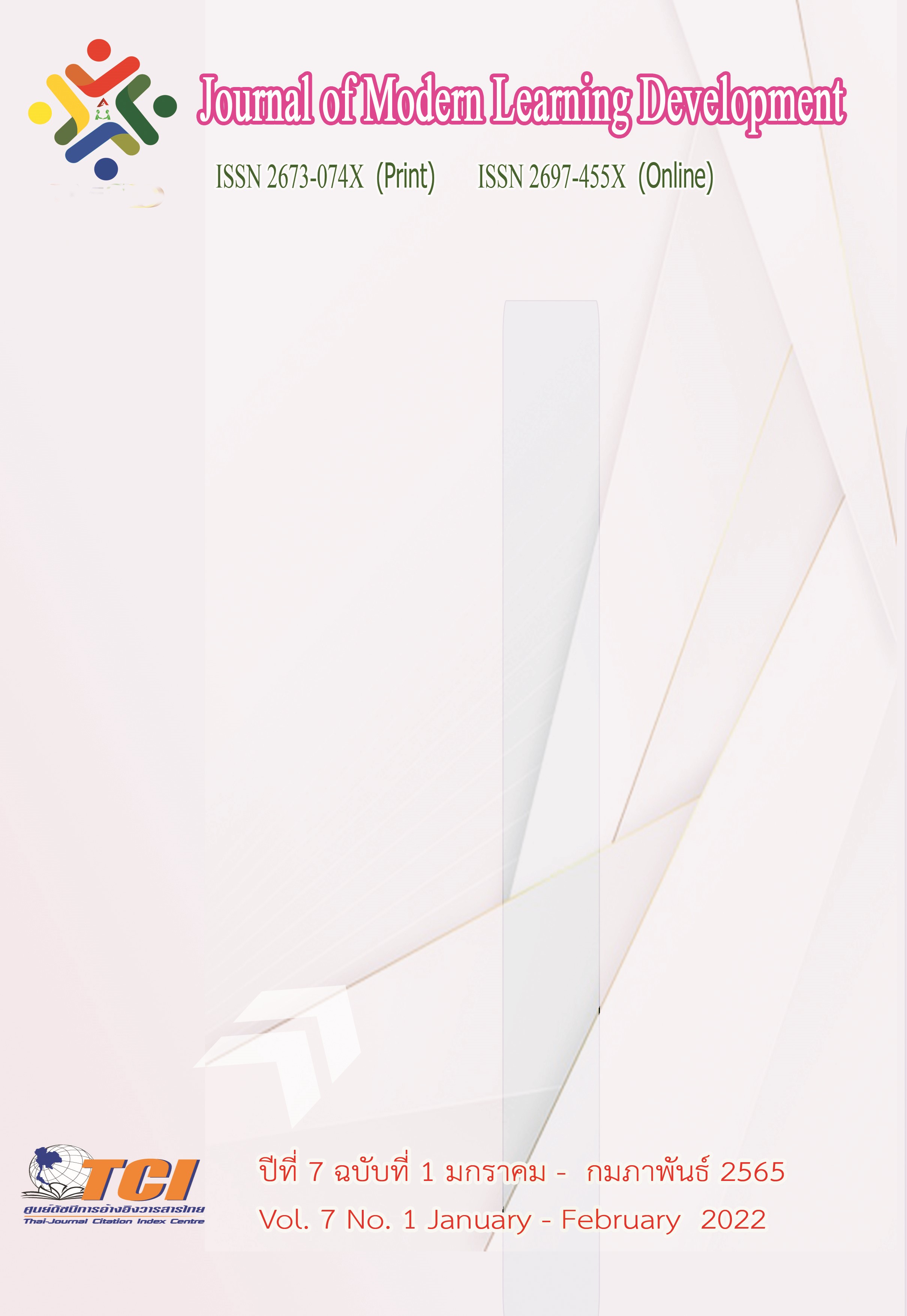Development of Learning Behavior of Animals : Case Study of Dogs and Cats
Main Article Content
Abstract
This study is a qualitative study aiming to understand psychological theories of animal mind, habituation of dogs and cats and learning behavior in dogs and cats for analyzing whether dogs and cats have mind or not. This qualitative study consists of two parts, documentary study and interview.
The objective of this study is to 1. study the psychological theories of animal mind 2. study habituation of dogs and cats 3. study learning behavior following psychological theories of animal mind and development of dogs and cat’s psychology.
The results showed that 1) Psychological theories of animal mind including anthropomorphism, behaviorism, and learning behavior 2) Habituation of dogs and cats including foraging behavior as predators and food selection in domestic ones, communication, and learning behavior (classical conditioning, social learning, conditioned taste aversion, imprinting and imitation) 3) Learning behavior following psychological theories of animal mind and development of dogs and cats’ psychology including expressing their emotions and self-awareness for example, suffering and pleasure which theoretically follow anthropomorphism, behaviorism and learning behavior.
Article Details
References
Boakes, R. (1984). Darwin to Behaviorism: Psychology and the Minds of Animals. New York: Cambridge University Press.
Colin, A. & Marc B. (2005). Animal Play and the Evolution Morality: An Ethological Approach. Topoi. 24, 125-135.
Mark, R. (2012). Can animal be moral?. Oxford University Press.


